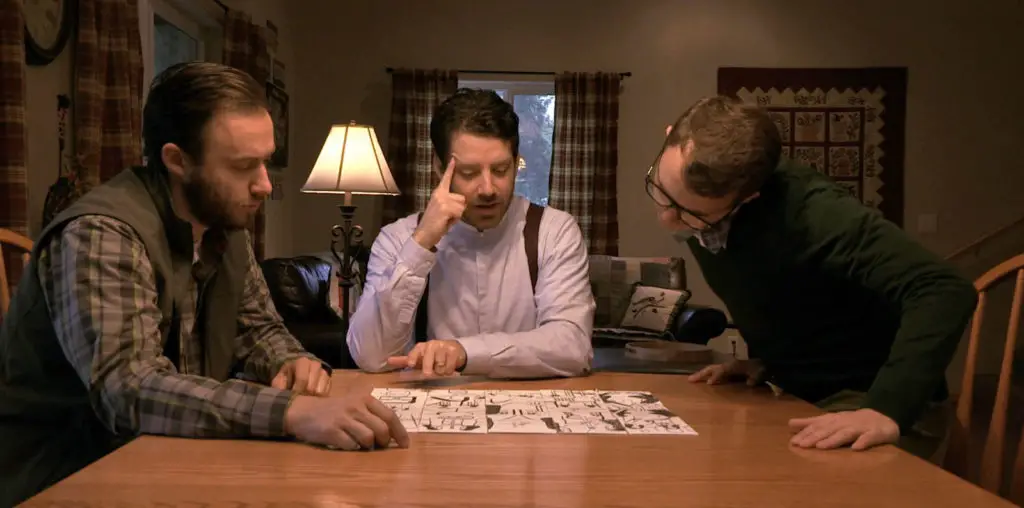
Director Ira Sachs has done something quite extraordinary here: He has taken the story of an adulterer who decides to murder his wife in order to spare her the devastation of being divorced by him and somehow, against all odds, succeeded in turning it into one of the dullest, most thoroughly pointless motion pictures ever made.
“Married Life” is set in 1949 and sports a noirish voice over by Pierce Brosnan. He is not the film’s star, however, but the star’s dapper and philandering best friend, Richard. Chris Cooper is Harry, a standard issue martini drinking period husband with a job as an executive in the big city, a home with a white picket fence, a faithful dog and a mid-life crisis.
Early in the movie he meets Richard in a restaurant to drink martinis, smoke cigarettes and confess his plan to leave his wife for a much younger woman with whom he has found “true happiness.” He has also brought his friend there to meet her and in she walks on cue, in slow motion. She is played by Rachel McAdams and her name is Kay but her bright red lipstick and platinum-blond do winkingly evoke Kim Novak, the filmmaker’s sly signal that we are about to enter Hitchcock territory.
And, indeed, the next hour or so does to some degree suggest a remake of “Dial M for Murder,” if one without even trace amounts of the original’s wit, suspense or style. The wonderful Patricia Clarkson is wasted in the role of Pat, the happy homemaker Harry is certain couldn’t bear to go on living without him.
She suffers from some sort of minor digestive ailment and at her bedside keeps a bottle of stomach medicine she takes like clockwork before retiring. After researching various poisons, Cooper’s character chooses one but, prior to spiking her bottle with the stuff, decides to test it out on his dog. It was right about here where Sachs, whose previous work includes “Forty Shades of Blue,” and co-writer Oren Moverman, lost me. Is “Married Life” intended as a black comedy, a tale of suspense or a Douglas Sirk-meets-John Updike rumination on suburban disloyalty and lust?
The filmmakers never get around to making up their minds so, despite the cast’s capable portrayals, it’s difficult to connect with or care about any of these characters as, one by one, each stabs another in the back. Eventually, the near misses with the medicine–each time Pat is about to take it, a plot device prevents her–grow tiresome and the revelations as to who’s really doing it with whom lose all power to shock. We get it already: This is “Peyton Place” and Viagra has gotten into the water supply.
The final act is a fairy tale of reconciliation so weird and preposterous it feels tacked on from another film. Toward the end, Brosnan voice overs something like “Can you ever really know what’s in the mind of the person sleeping next to you?” How profound. Maybe Sachs and Moverman will share a Nobel Prize next year for discovering the cheating heart.

